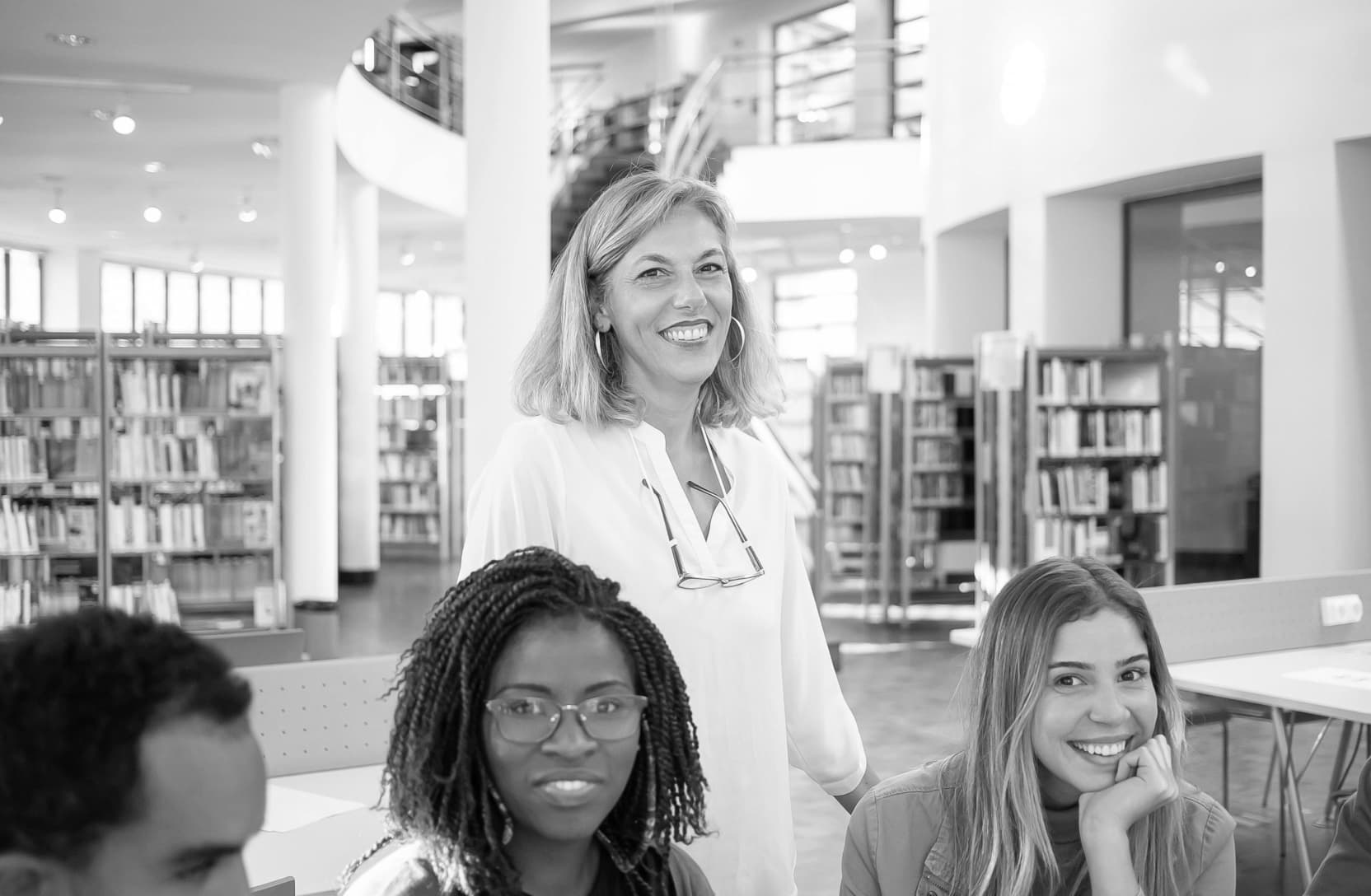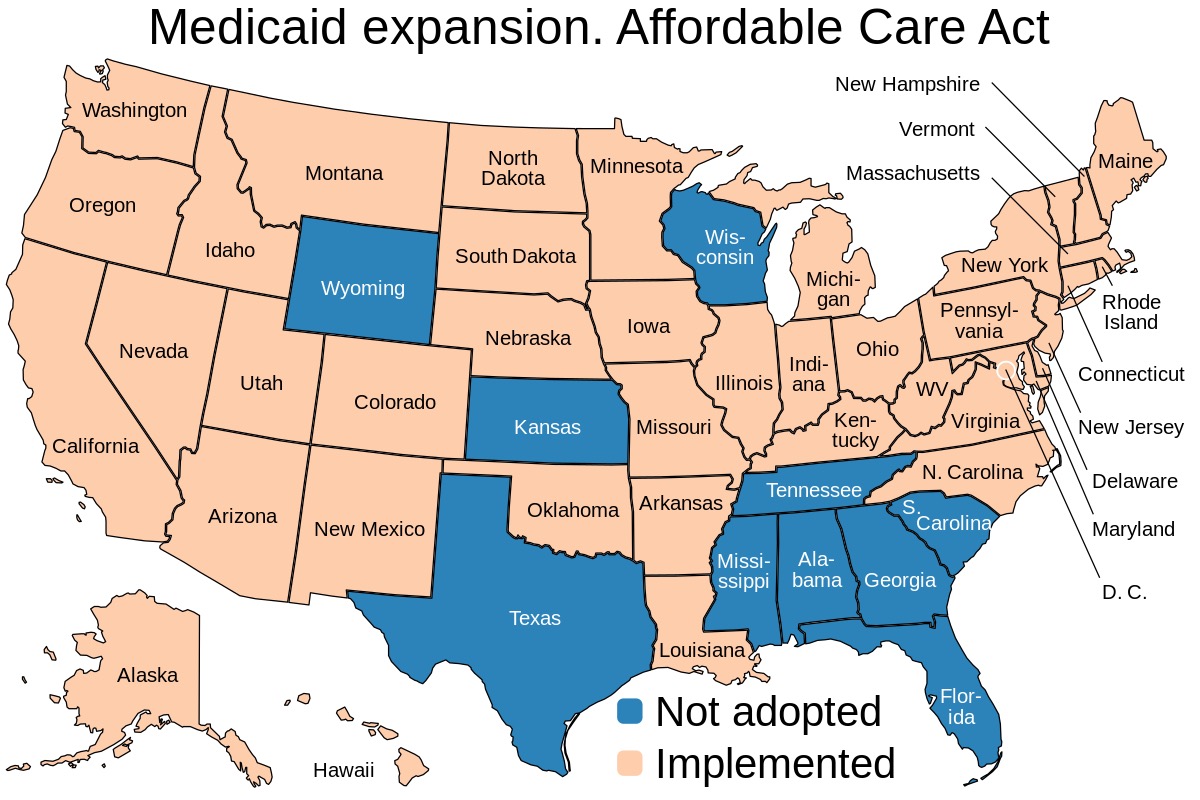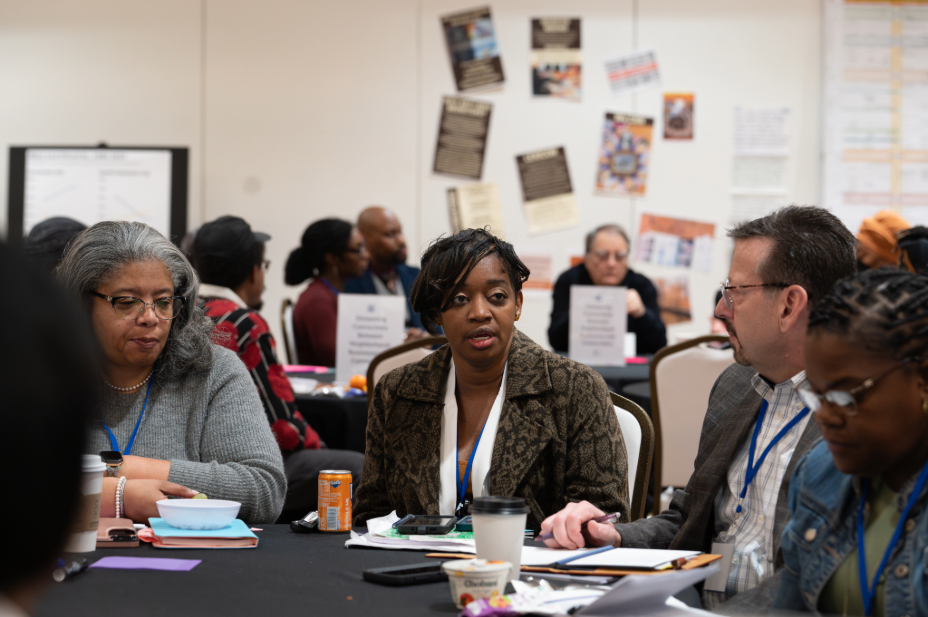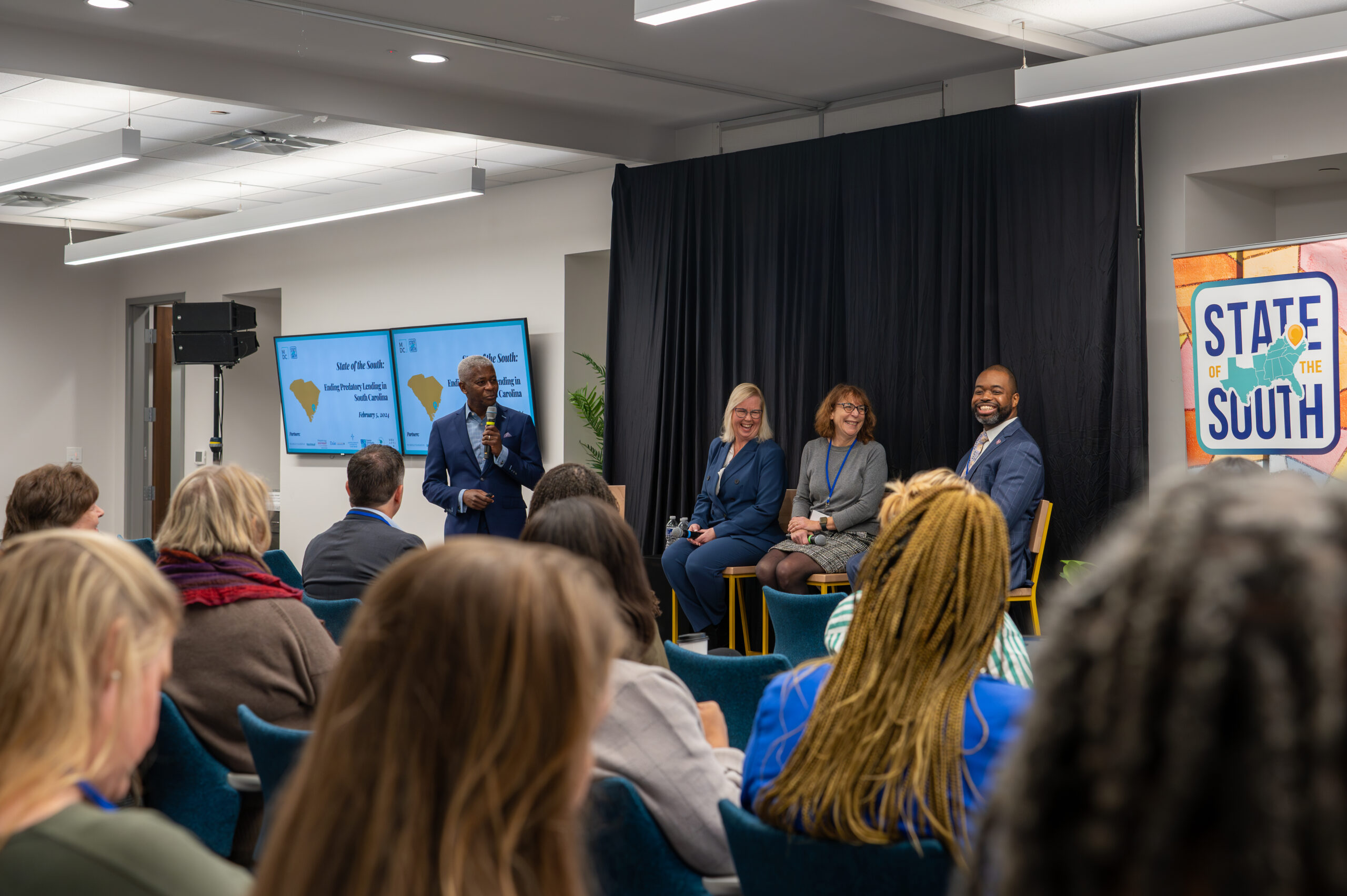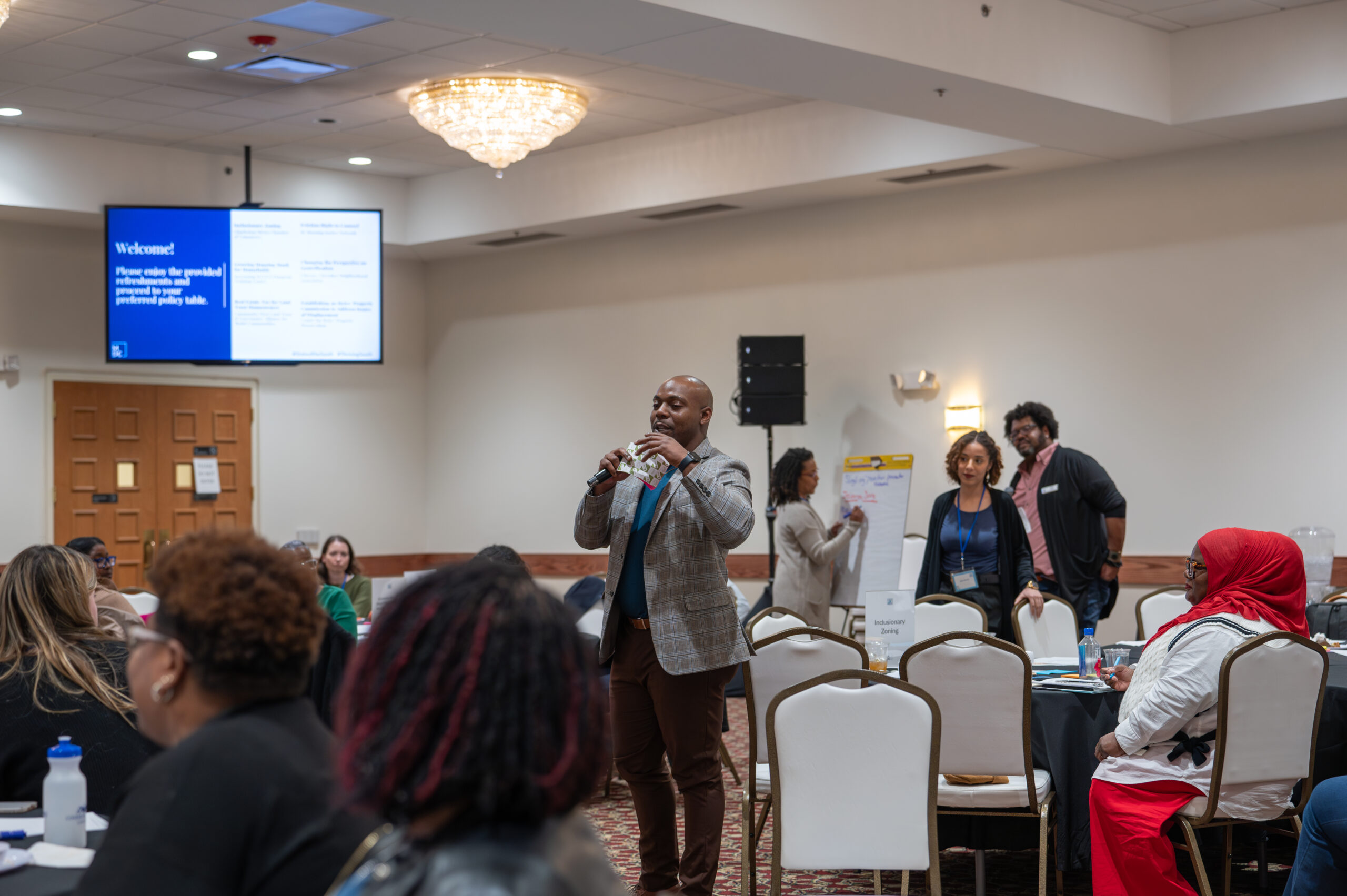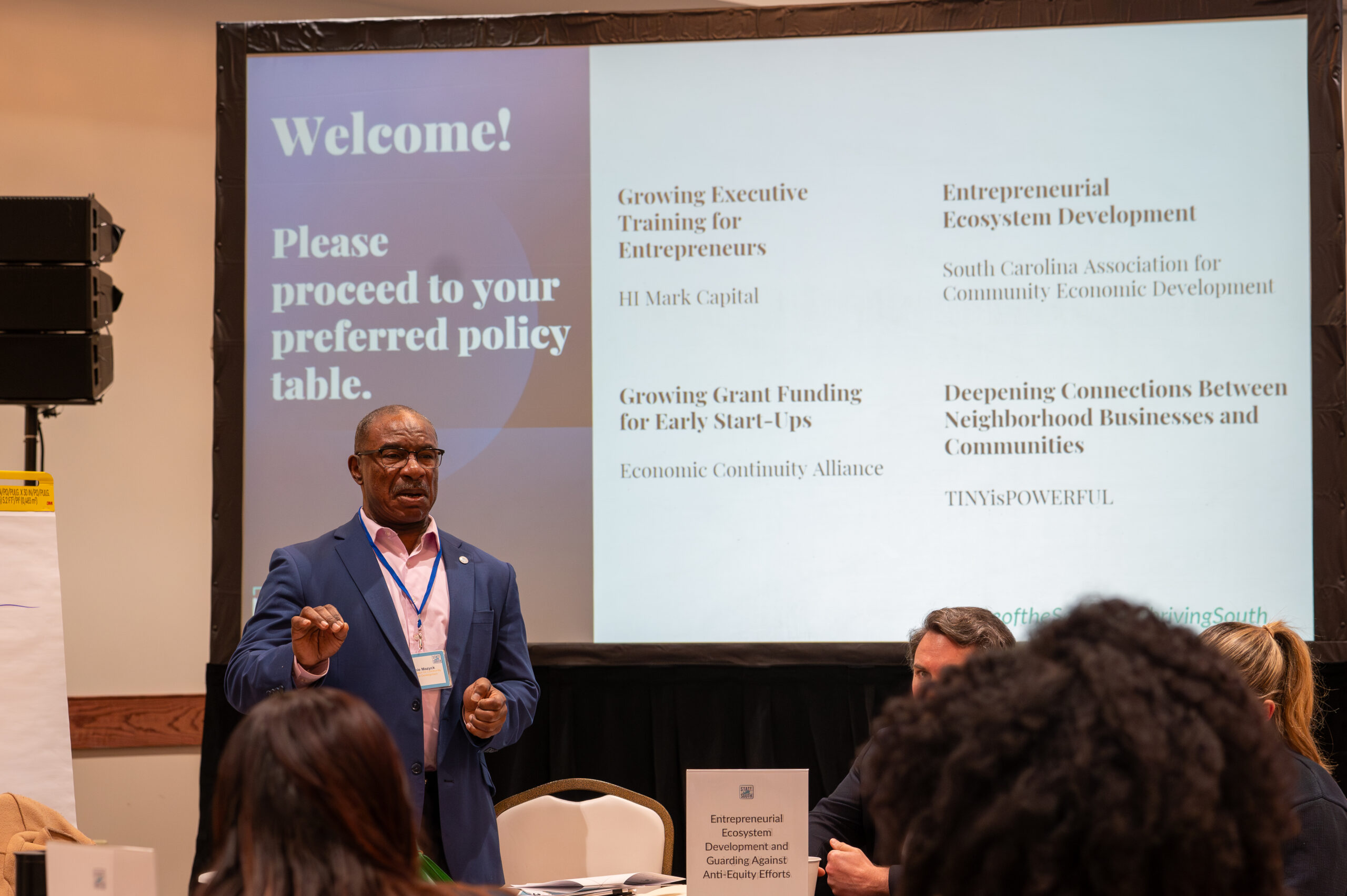MDC challenges Southerners to turn toward truth in its new series, “True South”
Dec 08, 2022
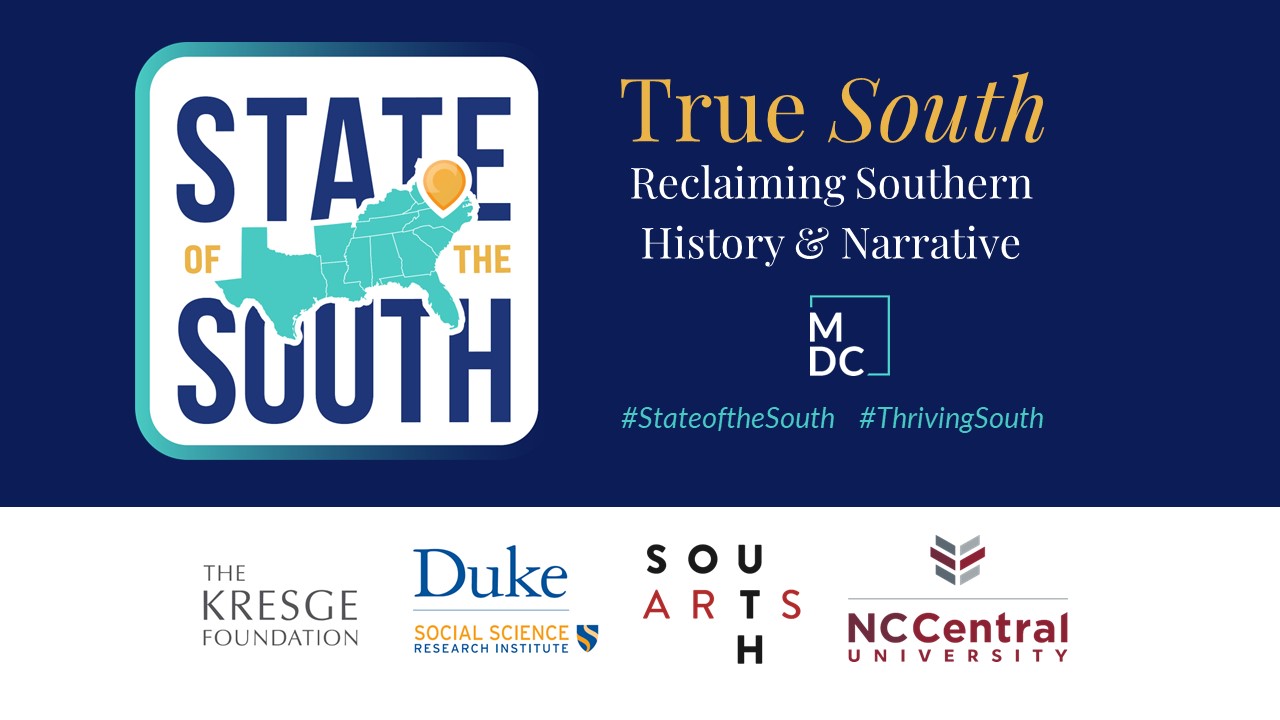
“A thriving South is not just a South of opportunity, it’s a South of possibility. We need more than empty promises of ‘opportunity.’ We need possibilities that extend toward the galaxies we ultimately want to inhabit.”
These words from MDC President John Simpkins served as a launching point for True South, MDC’s 2022-23 programmatic series that explores how—and if—Southerners are reckoning with the current era of economic, social, and environmental upheaval. The series is a reimagining of MDC’s State of the South reports, which have provided a valuable resource for Southern policymakers and practitioners for over 25 years.
This year’s theme, True South, is rooted in the assertion made by Frederick Douglass in his 1852 address: “America is false to the past, false to the present, and solemnly binds herself to be false to the future.” True South seeks to challenge Douglass’s claim, asking Southerners to take an honest look at our past and how systems have been intentionally designed to produce the inequitable racial and economic outcomes we see today. How can we turn toward, not away from, these hard truths and let their lessons guide us toward a better future, a South of possibility for all.

True South kicked off in October 2022 with an evening of arts and dialogue at the historic Hayti Heritage Center in MDC’s home community of Durham, North Carolina. Through words both spoken and sung, North Carolina artists provided a critical look at the role the arts play in advancing racial and economic justice in the South. This set the stage for the next day’s convening at NC Central University, which drew over 100 people from nonprofits, philanthropy, government, business, and community who were charged with first looking backward in order to move forward. [View the agenda.]
“It’s impossible to talk about ‘now’ without talking about how ‘now’ happened.” – Mondale Robinson, Mayor of Enfield, NC
Throughout the day, conversations centered around the role that past and present policy decisions have played in shaping racial and economic inequities in the South. As Mondale Robinson, mayor of Enfield North Carolina, proclaimed, “It’s impossible to talk about ‘now’ without talking about how ‘now’ happened.” From forced removal of Native Americans to enslavement of African Americans to more recent Jim Crow laws, redlining, discriminatory loan practices, voter suppression and more, it is clear that the South has an entrenched history of systemic racial oppression that shapes the inequitable economic outcomes we see today.

This history isn’t often acknowledged (and has even been actively suppressed, as we’ve seen through recent attempts to stop teaching “Critical Race Theory” in schools). Some institutions are trying to change this though. In a session organized by South Arts, Kate Pearce with the City of Raleigh Department of Parks, Recreation, and Cultural Resources shared how the City is working with Black and Indigenous communities to create a public park that reconciles with the land’s complex history. “We recognize this is a place of both violence and healing, incarceration and freedom, sustenance and scarcity. We need to connect with the hard parts even as we strive to create a place of joy and community.”
“We must write newer, truer narratives that include the difficulty of the past.” – Dr. Adriane Lentz-Smith, Duke Historian
Connections between the South’s past and present continued in a “data walk” facilitated by Duke Social Science Research Institute. As attendees walked around the room, they examined quantitative data visualizations that illustrated current social and economic conditions in the South. The purpose was not to accept the data at face value but, instead, interrogate it: Does this data reflect what we see in our communities? What is the history behind the data? How does the data we see disrupt or reinforce common narratives about the South?

The topic of data and narrative change came up again during afternoon concurrent sessions:
- “There is double-speak in how Durham is marketed as a ‘culturally diverse and inclusive community’ which contrasts with the reality of what you see when you move through Durham,” said Anita Scott-Neville, Hayti Reborn leader and panelist in the Gentrification & Displacement session. “The narrative is that Durham is for everyone, but the reality is, it’s only for those who can afford to be here.” Just this May, Raleigh/Durham was ranked #6 in Best Places to Live by US News (in fact, four of the top 10 best places were located in the South). Indeed, Durham and other cities in the South are marketed to outsiders as a great place to live/work/play. But from 2010-2020, housing prices have skyrocketed, making it all but impossible for longtime residents to stay, particularly those who were already living at the margins.
- “We often hear that ‘people don’t trust the government.’ But a more accurate take would be that ‘the government hasn’t been trustworthy,’” asserted a participant in the Inclusive Democracy session. This has been particularly true for Black and Brown communities in the South who have lived through generations of false promises from political and governmental institutions. When those same communities try to vote to change who makes the decisions, they’re met with discriminatory voting restrictions and even personal threats. It’s not surprising, then, that we see reduced or inconsistent voter turnout within Southern communities of color.
- “Who bears the greatest risk when starting a business? Despite what people say, it’s not the investors, it’s the business owners,” noted panelists in the Economic Development Session. And this matters. According to the Center for American Progress, “wealth and capital are a prerequisite rather than just a product of entrepreneurship,” and BIPOC communities have been “systematically prevented from accumulating wealth and accessing capital for centuries.” While many white people can afford to take risks that might increase their financial stability over time, people of color are often not in a financial position to take that leap. Those who try anyway often end up with smaller loans and greater financial challenges than their white counterparts.
“A thriving South is a South of possibility.” – John L.S. Simpkins, MDC President & CEO
Toward the end of the day, participants were charged with using “radical imagination” to identify solutions to some of these present-day inequities. While the ideas were wide-ranging, a few key themes emerged:

- Find the Activation Point. How do we get more Southerners engaged in the fight for equity as a shared Southern value? What’s the spark that will light the fire for change? Maybe it’s data, maybe it’s storytelling, or as Johnny Lee Chapman III reminded us, maybe it’s art: “If you give artists a seat at the table from the beginning, you’ll get ideas that lead to innovative policy and infrastructure change. Never forget art when you’re thinking about what to do next.” Find what activates people and start there.
- Move from creating “opportunity” to creating “possibility.” Many ideas centered on building stronger systems of support for historically marginalized communities—not just “opening the door and assuming people can walk through it,” but helping them find the door, walk through it, and navigate any challenges on the other side. Specific ideas included:
- More civic and voter education to increase community members’ understanding of—and engagement in—government and electoral processes
- Wraparound support—including emotional, financial, and relational—for candidates of color running for, and elected to, office
- Entrepreneurial ecosystem supports, such as training programs and access to capital, to help people start and sustain businesses
- Repair harm. Redesign systems. Re/build trust. While individual and programmatic shifts are important, participants emphasized that systems change is crucial. To tackle this, institutions must first acknowledge the harm they have caused and then work to transform policies and practices to level the playing field for all. Participants shared some examples of how institutions might do this:
- Enact participatory grantmaking (philanthropy) or budgeting (government)
- Change funding and reporting criteria to be less restrictive, trusting leaders to know what’s best for their communities
- Allocate resources in alignment with community needs and values rather than institutional or corporate interests (or, as one person put it, “put your money where your mouth is”)
- Build “worker committees” that center workers as valued partners alongside business leaders
Trust will take time, but it will build as institutions show that they can follow through on the promises they set forth.
Ultimately, we must ensure that individuals’ basic needs are met and that everyone has the financial and emotional freedom to achieve the quality of life they desire. We can only get there if we turn toward truth—reckoning with the South’s past to create a future of possibility for all.


